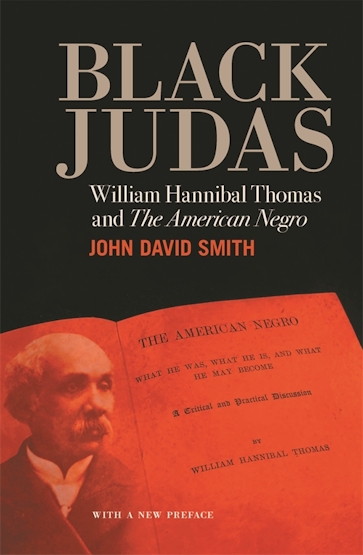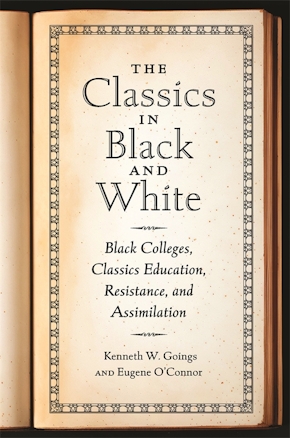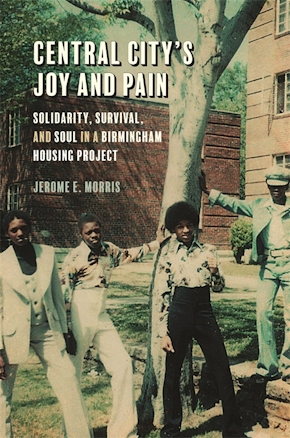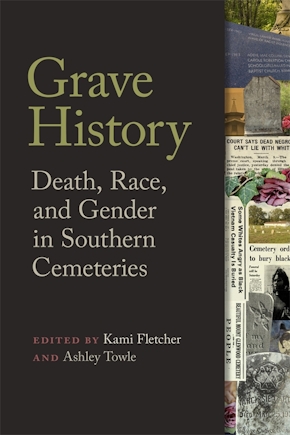Black Judas
William Hannibal Thomas and "The American Negro"
Title Details
Pages: 436
Illustrations: 2 b&w photos
Trim size: 6.000in x 9.000in
Formats
Paperback
Pub Date: 11/15/2019
ISBN: 9-780-8203-5626-6
List Price: $30.95
Related Subjects
HISTORY / United States / 20th Century
BIOGRAPHY & AUTOBIOGRAPHY / Cultural, Ethnic & Regional / African American & Black
Black Judas
William Hannibal Thomas and "The American Negro"
The classic biography of the infamous black Negrophobe William Hannibal Thomas, with a new preface by the author
Skip to
- Description
- Reviews
- Awards
William Hannibal Thomas (1843–1935) served with distinction in the U.S. Colored Troops in the Civil War (in which he lost an arm) and was a preacher, teacher, lawyer, state legislator, and journalist following Appomattox. In many publications up through the 1890s, Thomas espoused a critical though optimistic black nationalist ideology. After his mid-twenties, however, Thomas began exhibiting a self-destructive personality, one that kept him in constant trouble with authorities and always on the run. His book The American Negro (1901) was his final self-destructive act.
Attacking African Americans in gross and insulting language in this utterly pessimistic book, Thomas blamed them for the contemporary “Negro problem” and argued that the race required radical redemption based on improved “character,” not changed “color.” Vague in his recommendations, Thomas implied that blacks should model themselves after certain mulattoes, most notably William Hannibal Thomas.
Black Judas is a biography of Thomas, a publishing history of The American Negro, and an analysis of that book’s significance to American racial thought. The book is based on fifteen years of research, including research in postamputation trauma and psychoanalytic theory on selfhatred, to assess Thomas’s metamorphosis from a constructive race critic to a black Negrophobe. John David Smith argues that his radical shift resulted from key emotional and physical traumas that mirrored Thomas’s life history of exposure to white racism and intense physical pain.
—William L. Van Deburg, American Historical Review
—Anthony Badger, Cambridge University
—Vernon J. Williams Jr., Journal of American History
—John Hope Franklin
—Peter A. Coclanis, Reviews in American History
—James Smallwood, Journal of Southern History
—John Carver Edwards, Library Journal
—Vanessa Bush, Booklist
—Leonne M. Hudson, American Nineteenth Century History
—Joe Wheelan, Associated Press
—Don O'Briant, Atlanta Journal-Constitution
—Willard B. Gatewood, author of Aristocrats of Color: The Black Elite, 1880–1920
—Bruce Clayton, author of W. J. Cash: A Life
Winner
Mayflower Society Award, Society of Mayflower Descendents, State of North Carolina



